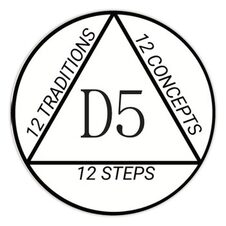Treatment Facilities Committee
Who We Are
Treatment is older than A.A. itself, and was largely unsuccessful until A.A. Bill Wilson was a patient in several facilities, including extended stays in Townes Hospital in New York City. After Bill got sober, he returned to Townes Hospital where he helped others to achieve sobriety. Our other co-founder, Dr. Bob S., is credited with sobering up over 5,000 alcoholics at City Hospital and St. Thomas Hospital in Akron, OH. Treatment and A.A. have worked hand and hand ever since.
We A.A.’s have an important opportunity today for us to work with our local A.A. members to share their experience, strength and hope with newcomers at discussion panels held in treatment facilities. The Treatment Facilities (CTF) committee and panel facilitators coordinate the work of individual A.A. members who carry the message to alcoholics in treatment facilities and work to clarify what A.A. can and cannot do, within the Twelve Traditions to help alcoholics in treatment.
Facilitators take an A.A. panel to the treatment facility about once every four to eight weeks depending on the facility’s next group in treatment. If the treatment center requests, we may participate more often.
We are always looking for A.A. members to participate in our panels. We currently have panels in treatment facilities in Bend, Redmond, Madras, and LaPine. If you are interested, please contact the CTF Committee Chair at ctf@district5aa.org or write us at:
District 5 CTF Committee
P. O. Box 7241
Bend, OR 97708
ctf@district5aa.org
Singleness of Purpose
When our panelists go in to speak to treatment facility clients, it is imperative that the panelists share their experience strength, and hope as it pertains to alcoholism. We acknowledge the many people have problems with other substances but our focus is alcoholism and how A.A. can help the still suffering alcoholic.
“Singleness of purpose is essential to the effective treatment of alcoholism. The reason for such exaggerated focus is to overcome denial. The denial associated with alcoholism is cunning, baffling, and powerful and affects the patient, helper, and the community. Unless alcoholism is kept relentlessly in the foreground, other issues will usurp everybody’s attention.” - George E. Vaillant, M. D. - Class A (nonalcoholic) trustee - A.A. General Service Board
“Our first duty, as a society, is to insure our own survival. Therefore, we have to avoid distractions and multipurpose activity. An A.A. group, as such, cannot take on all the personal problems of its members, let alone the problems of the whole world. Sobriety — freedom from alcohol — through the teaching and practice of the Twelve Steps is the sole purpose of an A.A. group. Groups have repeatedly tried other activities, and they have always failed. It has also been learned that there is no possible way to make nonalcoholics into A.A. members. We have to confine our membership to alcoholics, and we have to confine our A.A. groups to a single purpose. If we don’t stick to these principles, we shall almost surely collapse. And if we collapse, we cannot help anyone.” - Bill W., Co-founder of Alcoholics Anonymous
Other Helpful Links
How To Be of Service
- TF Committee Chair Requirements
- TF Panel Qualifications
-
Home Group Representative
(Find more on this on page 25 and 26 of the AA Group Pamphlet)
Bridging the Gap Program
Need a Temporary Contact from A.A. to Take You to a Meeting?
If you are within three months of your discharge date and would like to have an A.A. Temporary Contact be your link to the A.A. community through meetings and introduction to other A.A.s., you can click on the link below, print out the pamphlet, and mail it to:
District 5 TF Committee
P. O. Box 7241
Bend, OR 97708
ctf@district5aa.org
Volunteers
Part of Bridging the Gap between a treatment program and A.A. is the Temporary Contact Program, which is designed to help the alcoholic in an alcoholism treatment program make that transition. As you know, one of the more “slippery” places in the journey to sobriety is between the door of the facility and the nearest A.A. group or meeting. Some of us can tell you that, even though we heard of A.A. in treatment, we were too fearful to go. A.A. experience suggests that attending meetings regularly is critical. In order to bridge the gap, A.A. members have volunteered to be temporary contacts and introduce newcomers to Alcoholics Anonymous.
A.A. Guidelines from General Service Office (GSO) for Treatment Committees
A.A. Guidelines are compiled from the shared experience of A.A. members in various service areas. They also reflect guidance given through the Twelve Traditions and the General Service Conference (U.S. and Canada). The purpose of these Guidelines is to assist in reaching an informed group conscience.
Contact District 5 TF Committee Chair
District 5 CTF Committee Chair
P. O. Box 7241
Bend, OR 97708
ctf@district5aa.org
D5 Mailing List
CTF Resources
Panel Prep
(Send this link to anyone you ask to be on your panel)
Home Group Representative
(Find more on this on page 25 and 26 of the AA Group Pamphlet)
